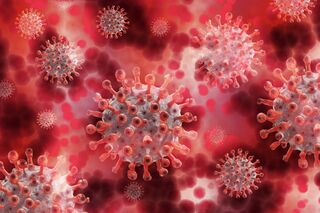Coronavirus Disease 2019
COVID-19, Vaccination and Vaccination Hesitancy in Africa
Health psychologists have an important role to play.
Posted June 14, 2021 Reviewed by Kaja Perina
Key points
- Vaccine hesitancy is a phenomenon that we cannot afford.
- Seek to recognise and understand people's real fears in relation to vaccine hesitancy.
- Health psychologists can play an important role in effective media campaigns.
This blog was co-authored with Prof Ashraf Kagee, a member of the Western Cape COVID-19 Vaccine Expert Advisory Committee, South Africa.
COVID-19 was first detected in Africa in mid-February 2020. Its impact has been profound, with some 4,900,000 cases reported in Africa as of June, 2021. While the official numbers are lower than the numbers for Europe and North America, South Africa has reported over 56,000 deaths, while Egypt has reported over 14,000 deaths as a result of COVID-19.

In this blog, we will focus on the rollout of vaccines in Africa, current disparities in the rollout and potential reasons for resistance to people being vaccinated. We then discuss a role for Health Psychologists in addressing vaccine hesitancy.
A BBC Report indicated that globally, 24 doses of the vaccine have been administered per 100 people, as of today (4 June 2021) yet the rollout in Africa is about 2 doses per 100 people. With the exception of Tanzania, Burundi, Chad and Eritrea, countries in Africa have been provided with vaccines, but the uptake has varied. South Africa, the country most affected by Coronavirus, has been particularly slow in its uptake of vaccinations, in part, by its decision to not use the AstraZeneca vaccine supplied to the country, following concerns that the vaccine offered insufficient protection from the variants prevalent in the country. The reasons are varied and may have to do with distribution issues and a lack of health infrastructure in parts of the continent. However, there is also a degree of hesitancy and scepticism in relation to being vaccinated.
Vaccine Hesitancy
Putting the issue of availability of vaccine aside, we wish to explore the hesitancy for people participating in vaccination programs, in a global health context. In a study commissioned by the Africa CDC on Covid-19 perceptions, it was reported that on average, about 20% of respondents said they would not be vaccinated with figures varying from 10% in Ethiopia, Niger and Tunisia to over 40% in DR Congo.
In Ghana, Dr Daniel Acorlor, a District Director of Health Services, attributes vaccine hesitancy to a number of myths, including the belief that the vaccines are not safe and did not go through full reviews by experts, inflammation at the injection site may mean that the vaccine is harmful, COVID vaccines contain human stem cells, the vaccine may alter the DNA of people who receive the vaccine, that the vaccine causes infertility, and that immunity from the vaccines is less safe than “natural immunity”. Some also harbour fears in relation to erectile impotence or erectile dysfunction. There is also a belief that if one has had COVID-19, it is unnecessary to be vaccinated. In a public education campaign in his region, Dr. Acorlor has been engaged in rebutting such ideas and providing accurate information as a means of addressing vaccine hesitance.

Conspiracy theories abound. Historically, in the context of other pharmaceutical products such as the MMR vaccine and antiretroviral therapy, sceptics have called attention to the phenomenon of “Big Pharma”, referring to huge multinational pharmaceutical corporations that have global influence. Some conspiracy theorists state that “Big Pharma” companies have a sinister agenda, that they work against the public good, or even cause and worsen a wide range of diseases with the purpose of maximising profits. These concerns have of course not been verified.
There is also a more prosaic explanation, and this relates to peoples’ natural anxieties and fears, both in relation to Covid-19 and the vaccine. People fear needles as well as the documented side effects associated with the vaccine. It may well be argued that hesitancy is a normal response in these situations, and it becomes important to address such reticence.
Notwithstanding these theories, if we are to reduce new cases of Covid-19 infections, the truth matters, and vaccines are extremely important. As such, it is essential that as many people as possible be vaccinated.
Addressing Vaccine Hesitancy
For us to return to some normalcy, it is essential to address hesitancy, drawing upon rational argument and a respectful understanding of peoples' values. A rights-based response will require the provision of up-to-date information about the nature of the virus, its impacts and accurate information on current vaccines. It is important for health authorities to provide regular and accessible information to the general public to counter potential rumours and misinformation, with a view to promoting public calm in response to an often anxiety-related topic. Such information needs to be in relevant languages and accessible to all, with a view to raising awareness of the necessity to dispel myths and overcome any cultural stigmas or taboos. Such an approach fosters the values of health for all.
How Health Psychologists Can Help
Considering the importance of accurate information and the uptake of a Covid-19 vaccine for global health, vaccine hesitancy needs to be taken seriously by public health officials, political decision-makers, infectious disease experts, and researchers and psychologists. Health psychologists may play an instrumental role in addressing such hesitancy through the following:
- Work with public health officials and the media to design comprehensible messaging communicating accurate and accessible information so that the public can be properly informed about how vaccines work, why they are important, and why it is necessary for people to accept a vaccine when it is offered to them.
- Seek to understand people’s emotional concerns such as anxiety, fear and suspicion about vaccines and work with community organizations, trade unions, political organizations, the media, and individuals to ally these concerns.
- Assist with social marketing campaigns to encourage scientific mindedness among the public so that scientific concepts such as randomized trials, the placebo effect and the basics of how vaccines work can be better understood by the population.
While respecting personal autonomy in decision making, people need to be reassured and given accurate information so that they can make the best decisions for themselves, their families and their communities.
Parts of Africa may be confronted by a third wave of the pandemic in the coming months. It can be mitigated if enough people are vaccinated so that its effects are not as disastrous in terms of the number of infections, hospitalizations, loss of life, and economic consequences. The health care system across the African continent has already taken enormous strain and patients with non-Covid-related conditions are being denied treatment because of the need for hospital beds for COVID-19 patients.
Vaccine hesitancy is a phenomenon we cannot afford. Health psychologists are able to play a role in devising ways to counter false information and conspiracy theories, as well as help people deal with their genuine fear and anxiety so that as many people as possible can be vaccinated. In this way, we hope to see the worst of the COVID-19 pandemic come to an end.




